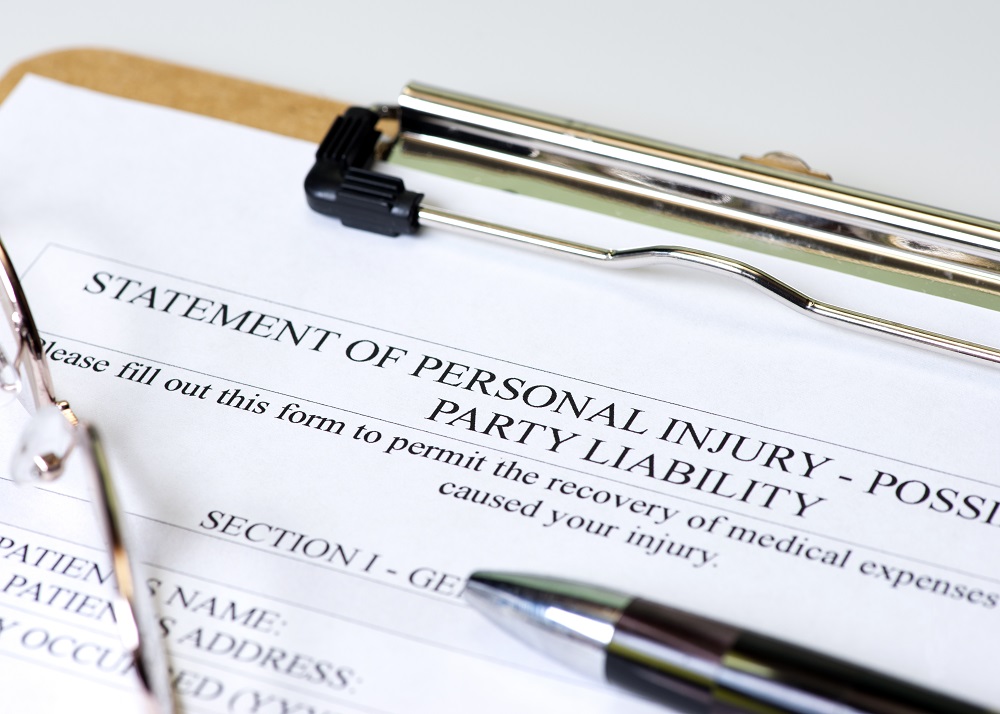How to File a Personal Injury Lawsuit in Philadelphia

After getting into an accident and getting injured in Philadelphia, you’re probably wondering how to file a personal injury lawsuit. The specifics of where and how you should file your lawsuit will depend on the extent and exact nature of your damages or losses, and if the accident occurred due to another person’s negligence. Where the accident transpired and whom you are filing a lawsuit against are likewise crucial factors to consider.
It’s also crucial to know that you might not have to file a personal injury lawsuit if your claim settles (as most injury claims do) before it reaches the court. Otherwise, here’s a quick primer on filing a personal injury lawsuit in Philadelphia.
Filing Your Personal Injury Lawsuit in Small Claims Court
Before filing your lawsuit, you should first decide whether you should file with the civil court or small claims court. Basically, small claims court hears personal injury cases that involve low damages amounts, which is the amount of compensation you are seeking for your losses. In Philadelphia, the Municipal Court only hears cases that involve a damage award of no more than $12,000, which is exclusive of court costs and interests.
Specifically, the Municipal Court hears two particular types of cases, which are contract actions and negligence actions. This means that it won’t hear cases against Commonwealth parties. Likewise, it can’t order someone to do something, like make repairs to or return property. Furthermore, in most cases, you may only be allowed to recoup compensation for measurable damages, such as your medical expenses or property damage. This means that you may not be able to recover damages for pain and suffering.
It’s also important to note that if you’re pursuing compensation from the defendant’s insurance provider, the insurer will be represented by an attorney with extensive experience in personal injury cases. Unfortunately, figuring out how to file a personal injury lawsuit in Philadelphia can be very confusing.
How to File a Personal Injury Lawsuit in Civil Court
If your losses are higher than $12,000, which is the maximum limit for cases heard by the Philadelphia Municipal Court, you have to file your personal injury lawsuit with the civil court.
Initial Documents for a Philadelphia Personal Injury Claim
You or your Philadelphia personal injury lawyer must prepare and file the initial documents required to initiate your lawsuit. If you’re working on your own, you can check the court’s website to learn about the local court rules for filing complaints. You must pay close attention to the information you must include in your complaint and which documents or forms you have to submit with your complaint.
Civil Complaint in Philadelphia
Like all court filings, civil complaints are subject to very strict standards. You must ensure that your complaint contains accurate content and form in accordance with court rules. A complaint is composed of separate and numbered paragraphs that contains an allegation and specifies the following information:
- The injuries you sustained from the accident
- The specific facts and circumstances surrounding your injuries and related losses
- The defendant, which could be an individual, company, or business
- The legal basis for filing your complaint
- The amount of damages or compensation you are seeking
Filing your Complaint in Philadelphia
Learning how to file a personal injury lawsuit at the courthouse is a little more straight-forward. You must go to the courthouse and file your complaint, other required supporting documents, and forms, with the court clerk. Make sure to bring cash or your checkbook to pay for the filing fee since courthouses usually don’t accept credit card payments.
The Service of Process
Once you have filed your complaint, you will then have to effectuate service on the other party, which is the defendant. Basically, you must provide the defendant with a copy of the documents you filed with the court. It’s immensely vital that you serve the defendant properly, since failing to do so could result in your case being dismissed. You also need to get proof that you’ve served the defendant properly, and file your proof with the court.
What Happens After My Complaint is Filed?
You’ve now started the litigation stage of your personal injury lawsuit and will have to wait for the defendant to answer your complaint. You will also need to wait for the court to hold a conference or give you a schedule for your lawsuit, which includes when you begin the discovery process.
A Knowledgeable Philadelphia Personal Injury Lawyer Can Help
Personal injury lawsuits are complex, and there are all kinds of factors that must be considered when it comes to how to file a personal injury lawsuit in Philadelphia. Knowing how to determining how much compensation to pursue, when to settle, and how to secure the best possible outcome is usually done better by a professional.
Unless fault for the accident that led to your losses is undisputable and the other party is willing to give you a fair settlement, you will need to build a strong case against the defendant to win your lawsuit. This is where the expertise and experience of a Philadelphia personal injury lawyer will be needed.
If you are thinking of filing a personal injury lawsuit, contact Mattiacci Law, LLC to speak to our Philadelphia personal injury lawyer. Schedule your free case review online or by calling 215-709-7915.
